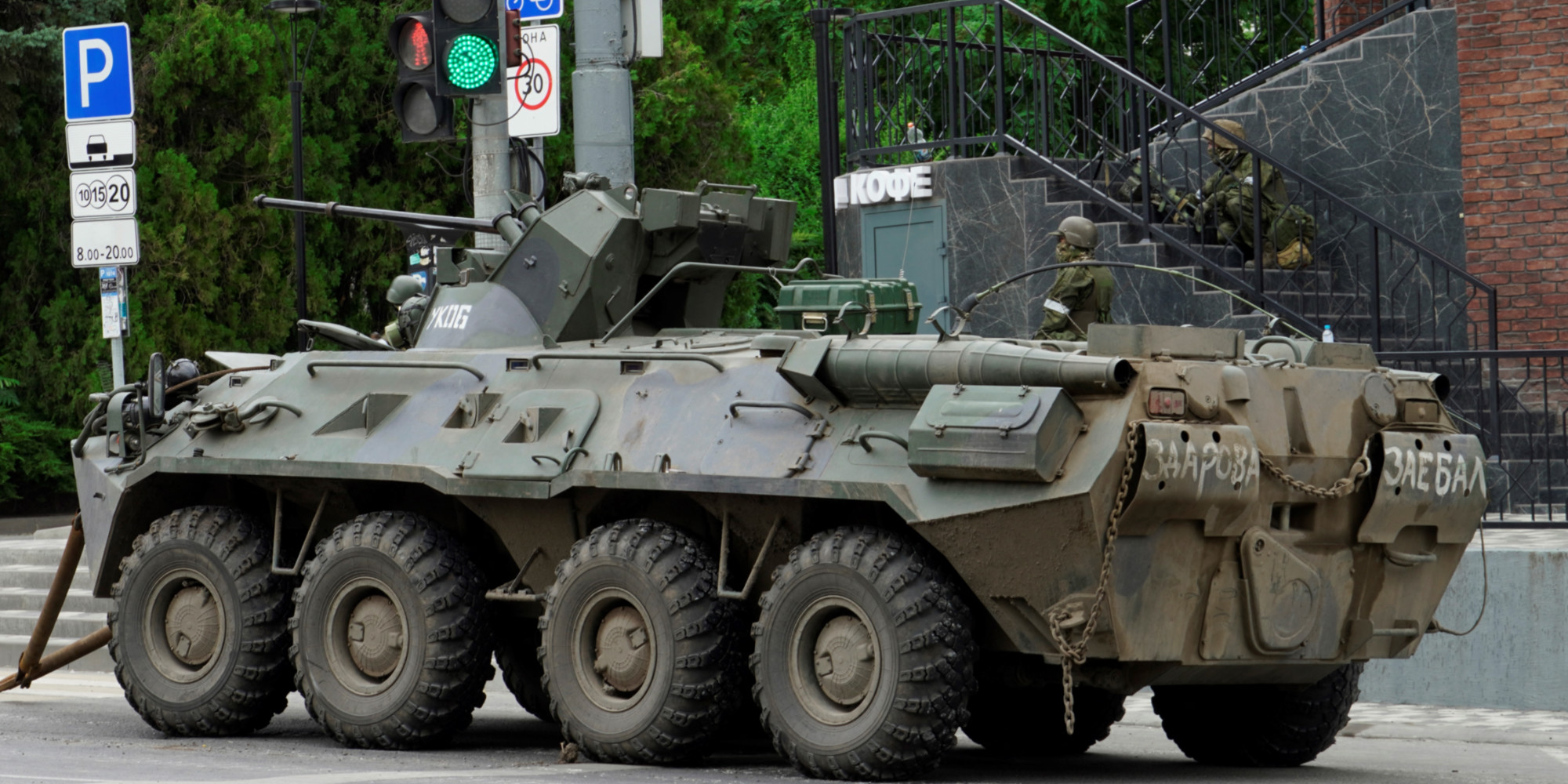Many countries were following the situation in Russia very carefully on Saturday, stressing that the next few hours promised to be crucial, after the rebellion of the leader of the Wagner militia Evgeny Prigojine against the Russian regular troops. A crisis that demonstrates the weakness of Moscow, according to Ukraine.
Ukraine
“Russia’s weakness is obvious. Total weakness,” he said on social media. “It is equally obvious that Ukraine is capable of protecting Europe against contamination by evil and Russian chaos.”
European Union and G7
The head of diplomacy of the European Union, Josep Borrell, after noting at first that the event was “an internal problem in Russia”, while indicating to follow the situation “attentively”, recalled in a tweet that “our support for Ukraine is unwavering”.
Had a call with @G7 Foreign Ministers to exchange views on the situation in Russia.
Ahead of Monday’s EU Foreign Affairs Council, I am coordinating inside the European Union and have activated the crisis response centre.
Our support to Ukraine continues unabated.
— Josep Borrell Fontelles (@JosepBorrellF) June 24, 2023
He also said he had activated the EU’s “crisis response center” to coordinate exchanges between the Twenty-Seven, ahead of a meeting of EU foreign ministers scheduled for Monday in Luxembourg.
And added that the foreign ministers of the G7 had also met on Saturday, without giving any details on the content of these exchanges.
Türkiye
The Kremlin has indicated that President Vladimir Putin had received “full support” from his Turkish counterpart Recep Tayyip Erdogan on Saturday during a telephone interview.
Belarus
Wagner’s rebellion is a “gift” to the West, said Belarusian diplomacy.
United Kingdom
British Prime Minister Rishi Sunak called on the BBC on Saturday for “all parties to be responsible and to protect civilians”, adding that he was following the situation “closely” and would speak with some of the allies of the UK during the day.
“In the coming hours, the loyalty of the Russian security forces, in particular the Russian National Guard, will be essential for the outcome of the crisis. This represents the most important challenge for the Russian state in recent times”, wrote the Ministry of Defense, in a daily update on Twitter.
France
The French President Emmanuel Macron “is following the situation closely. We remain focused on supporting Ukraine,” said the French presidency.
Italy
Italian Prime Minister Giorgia Meloni “closely follows the events unfolding in Russia, which show how the aggression against Ukraine is also causing instability in the country,” her office said in a statement.
On Twitter, Foreign Minister Antonio Tajani advised Italians living in Russia “to be careful”.
Germany
Chancellor Olaf Scholz “keeps himself constantly informed”. “The situation remains very dynamic, so we are monitoring it very closely and we are also coordinating with our closest allies,” a spokesman for the chancellery told AFP.
The Ministry of Foreign Affairs has updated its advice to travelers, recommending, on its website, “to avoid downtown Moscow until further notice”, as well as “governmental installations, in particular military”.
Austria
Conservative Austrian Chancellor Karl Nehammer, one of the few heads of government to meet Putin in Moscow after the outbreak of the Russian invasion of Ukraine, insists on the nuclear danger. “The operations of the Russian Federation are always of the utmost importance, because (it) has a great potential for biological, chemical and nuclear weapons. In this, the cohesion and unity of the EU are of the utmost importance. great importance”.
Nordic countries
Sweden, Norway and Denmark reacted with the voices of their respective foreign ministers. The first two said they were “closely following the development of the situation in Russia”. Norway also advises against all travel to Russia.
As for Denmark, it advises its citizens currently in Russia “to stay inside, (to) wait and (to) inform themselves through media such as Itar-Tass”.
Belgium
“The situation in Russia is serious. I continue to closely follow the evolution of the situation with my services, and to see what impact it will have on the conflict”, tweeted the Belgian Minister of Defense Ludivine Dedonder.
Czech Republic
The Czech Republic, through the voice of two of its ministers, reacted on Saturday with a certain irony. “Here, we finally know what the Russians meant by a Special Operation. After 16 months of war in Ukraine, Russia is waging war on Russia,” said Defense Minister Jana Cernochova.
“It’s no surprise. It’s a tradition with them. Failed wars always end in the execution of the Tsar, followed by chaos and a civil war supervised by secret service spies. Congratulations!”, she added. As for Foreign Minister Jan Lipavsky, he contented himself with a laconic: “I can see that my summer holidays in Crimea are approaching”.
